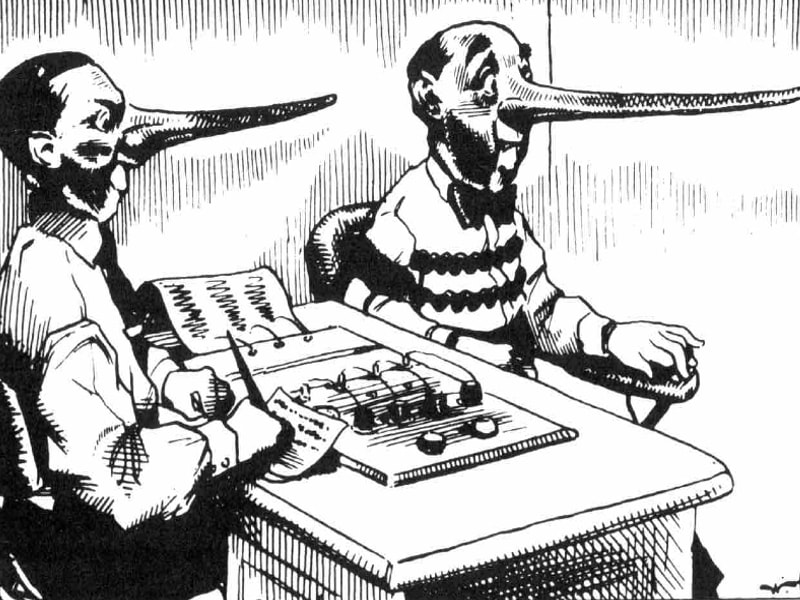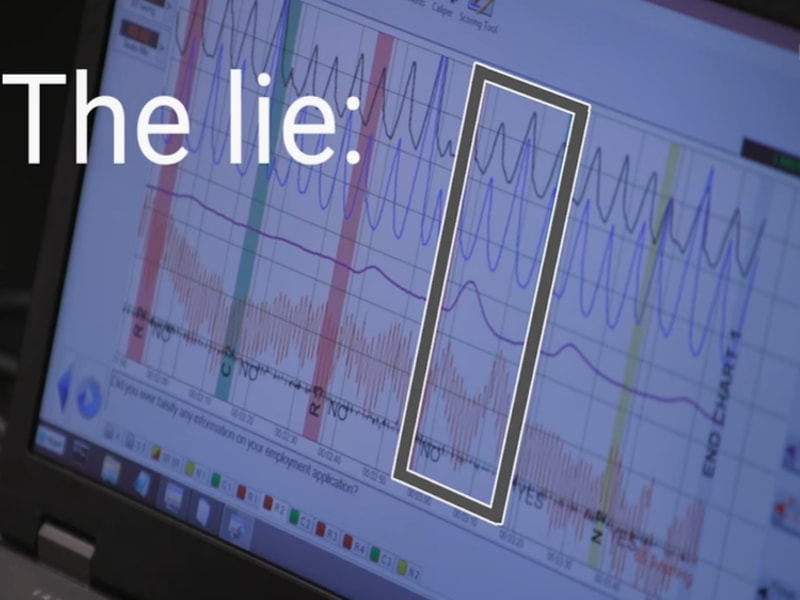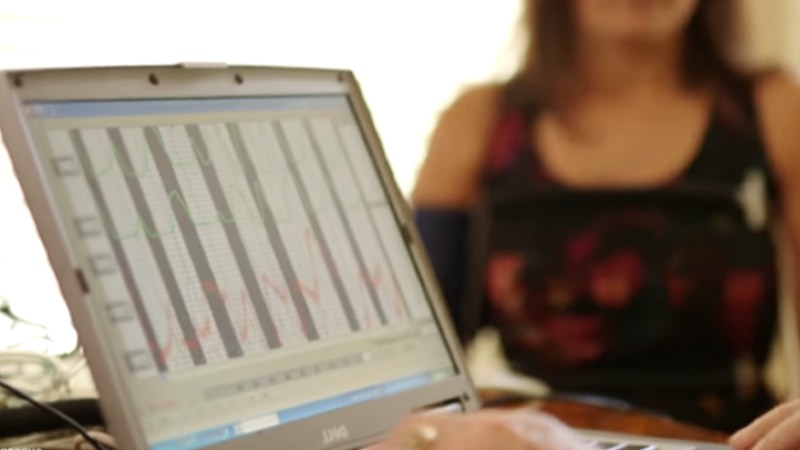What do they ask on the FBI polygraph test? Many people ask this question every year, and it is an annual occurrence. You may also be wondering how the FBI has the ability to take statements from criminals and make them more difficult for them to get, right?
The most basic meaning of the word is that it is primarily used during interviews as a way to intimidate the interviewee and to determine whether or not they are confident and competent.
As we continue to read this article, we will be able to learn more about these topics.
What Are FBI Polygraph Questions?
The polygraph test – commonly called a lie detector test – is an instrument designed to measure a person’s physiological responses to questions in response to questions they are being asked.
It is widely believed that a polygraph test measures a person’s heart rate or blood pressure, respiration, and skin conductivity, all of which are measuring the level of mental activity in a human being. The purpose of the test is usually to prove whether or not the subject committed a crime.
There is, however, a limitation to the test, and it cannot test for honesty itself. Polygraphs are based on the analysis of the responses given by the person being tested rather than the analysis of the operator, which can lead to inaccuracies.
Consequently, in the United States, polygraph tests are generally not admissible as evidence as they are in other countries.
Can You Fail A Polygraph By Being Nervous?

An individual who is nervous may not be able to pass a polygraph test due to his or her nervousness.
Even if you are not lying, you are likely to have high blood pressure due to nervousness, a high heart rate, and heavy breathing even if you are not lying.
Anxiety, nervousness, and lying cannot be distinguished by lie detectors, since they are not able to differentiate between them.
For them to determine the truthfulness of your statements, they rely on your unique physiological response in order to make a determination. As a result, feeling nervous before a test may result in you failing it.
In spite of this, since they have been in the industry for many years, the examiner usually understands when someone is nervous or lying, and they know when the person is lying.
Most of the time, they are going to be able to figure out that you are just nervous and will give you some advice on how to calm down. Also, if you answer a question in a way that shows you to be lying, they will consider that answer.
Furthermore, it is advisable to let your examiner know if you are someone who has been diagnosed with anxiety, PTSD, ADHD, or BiPose Disorders before taking the polygraph test as well.
How Can You Cheat The FBI Lie Detector Test Questions?
One way to cheat the polygraph is by deliberately distorting your physiological readings when telling the truth, such as by biting your tongue, or by imagining a humiliating incident from the past while you are testifying.
In the same way, brain scan lie detectors suffer from similar problems, since they require a reliable baseline against which they can compare signs of lying, and they are able to detect lying based on this baseline.

What Are The FBI Pre-employment Polygraph Questions?
Since the administration of the polygraph test has the potential to be expensive, the polygraph is usually the final stage of the application process. In most cases, your application will be considered once you have passed the police written test, oral board interview, and physical agility test.
A background questionnaire will be given to you in advance of taking the polygraph test. During the process of submitting an application, it is very important to provide honest answers to the questions as the information you provide will be compared to the answers you gave elsewhere.
The following are a few examples of the types of topics a polygraph and questionnaire may cover:
- Personal history
- Negative information from other agencies (such as previously failing a polygraph)
- Employment background
- Criminal behavior
- Financial information
- Illegal drug use
- Alcohol use
- Illegal or deviant sexual behavior
What Does The FBI Polygraph Ask?
You will be asked about the following topics during a typical police polygraph or CVSA:
- Shoplifting or theft of money or merchandise from the employer.
- Illegal drug trafficking or dealing.
- Illegal drug or medication use, including steroids.
- Use of alcohol.
- Falsification or minimization in your requested information.
- Arrests for anything other than minor traffic violations.
- Commission of a crime that has not been detected.
- Concealment of anything in your background that would affect your chances for this position.
- Involvement in a physical fight with another person, including domestic violence.
- Use of excessive physical force against another person.
- Payment or receipt of any bribes.
Should You Take a Lie Detector Test?
There are different answers to this question depending on the reason why you are taking a lie detector test in the first place.
It is very likely that you will be asked to take a polygraph test if you are being investigated for criminal activity and your probation officers are asking you to do so.
Consequently, it is safe to assume they are most likely trying to verify whether or not you are lying as well as gather evidence against you in order to prosecute you.

There is a good piece of advice that can be given in such a case, that would advise you to refuse to take the lie detector test if you are guilty of the crime, especially if you are a sex offender or involved in a bank robbery.
In any case, it is advisable that you follow the advice that your lawyer gives you.
The Polygraph Test is a standard procedure in most offices for new employees to take, and if your office asks you to take one as part of the hiring process, then it is recommended that you take it.
In addition, if your employer suspects money or documents have been stolen from the office, they may ask you to take a polygraph test. The chances of you failing a polygraph test if you are innocent are slim if you are in such a situation.
It may be saved you from other hassles at the office if you take this kind of test. In spite of this, you should hire the services of a lawyer as soon as possible.
A lie detector test can be a fun experience if you decide to hire a private examiner for the purpose of taking the test with your friends for recreational purposes or for fun if you ask a friend to take it for you.
FAQs
How do you stay calm during a polygraph?
If you are asked a relevant question, keep calm and answer honestly.
Put yourself in a calm state of mind when you answer any questions you are asked related to the case or situation at hand.
In order to prevent a number of major spikes in your physiological responses, it is important to remain calm whenever possible.
Are polygraphs yes or no questions?
It is important not to overthink the situation. In the polygraph examination, there will mainly be yes-or-no questions that should be simple and easy to answer.
The same may be true for those of you who believe there is no right answer, or who tend to have doubts about their choices even after they have been made.
How often are polygraphs wrong?
It is widely believed that polygraph tests are highly accurate, citing that an accuracy rate above 90 percent is seen when polygraphs are done properly, according to the American Polygraph Association, which sets standards for the test.
The tests, however, have been criticized by some critics as being only 70 percent accurate in the majority of cases.
References

Tracy M. Hall was born in 1995 and studies society, human behavior, and mentality. She’s captivated by people’s interactions and motivations. After studying sociology, she got a Ph.D. in social psychology from Carnegie Mellon University. She wrote about human interaction, separation, and the future.
Tracy M. Hall is a social butterfly who likes meeting new people. She’s a superb listener and often acts as a confidante or mediator, eager to help others. Tracy’s life is an open book; Tracy shares her experiences to benefit others. She’s a natural optimist who feels everyone has something to offer and loves helping others realize their best.
Tracy M. Hall volunteered with mental health groups for years. She’s dedicated to destigmatizing mental illness and assisting.
